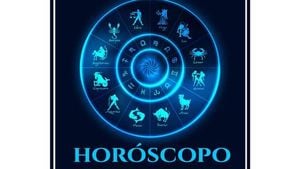In a significant development on April 6, 2025, TikToker Phan Bảo Long issued a public apology concerning the controversial Kera vegetable candy, acknowledging a lack of objectivity in his previous promotion of the product due to his admiration for popular figures such as Quang Linh Vlogs and Hoa hậu Thùy Tiên. He admitted to failing to warn consumers about the presence of sorbitol in the candy, a sugar alcohol known for its laxative effects. This incident has sparked a broader discussion about the responsibilities of influencers in promoting food products.
On the same day, Nguyễn An, the owner of the review channel "Chú Cá Review Không Booking," announced that he had refunded six orders of the Kera candy and reported the situation to the relevant authorities. His actions reflect a growing concern among influencers who previously endorsed the product after several individuals, including Quang Linh Vlogs and Hằng Du Mục, were prosecuted for allegedly producing counterfeit food and deceiving customers, as outlined in Articles 193 and 198 of the Vietnamese Penal Code.
Lawyer Diệp Năng Bình emphasized that TikTokers with large followings are considered public figures and are subject to Vietnamese law. He stated, "If TikTokers provided inaccurate or incomplete information about Kera candy, they could be jointly liable under Clause 3, Article 22 of the Law on Protection of Consumers' Rights 2023 if they cannot prove they took all necessary steps to verify the information." This legal framework raises questions about the accountability of influencers in cases where consumers are misled.
According to Clause 5, Article 34 of Decree 38/2021/NĐ-CP, individuals who falsely advertise products on social media may face fines ranging from 60 million to 80 million đồng. Additionally, they could be required to remove misleading advertisements and correct the information under points a and c, Clause 8, Article 34 of the same decree. If the false advertising meets the criteria for a criminal offense, violators may be prosecuted under Article 197 of the Penal Code 2015, which carries penalties of fines between 10 and 100 million đồng or non-custodial reform for up to three years.
Lawyer Trần Thị Huyền Trân noted that TikTokers promoting unverified products, especially those related to health, could face legal repercussions depending on the severity of their violations and their relationship with the manufacturer. She stated, "If it is determined that they intentionally aided in fraudulent activities or participated in an illegal distribution network, criminal liability for 'Deceiving Customers' or 'Producing, Trading in Counterfeit Food' may be considered, but this will depend on the investigation's findings regarding their knowledge and intent."
The Kera candy incident serves as a wake-up call for content creators, highlighting that their influence extends beyond entertainment to affect consumer behavior, health, and financial well-being. Both lawyers agree that while endorsements can help brands reach consumers quickly and effectively, they also carry significant risks if influencers do not fully understand the legal responsibilities involved.
As the investigation unfolds, the Ministry of Public Security has revealed that individuals who purchased Kera candy are encouraged to contact authorities for guidance. The police have identified 135,325 boxes of Kera candy sold, which has raised alarm among consumers who trusted the product based on influencer endorsements. Many have expressed confusion and concern about seeking refunds or reporting health issues after consuming the candy.
Recent findings from the investigation into Kera candy production have brought to light serious violations. Colonel Trần Quốc Cường of the Ministry of Public Security shared that the Asia Life factory in Đắk Lắk province, which produced the candy, was found to have sourced vegetable powder that did not meet the required VietGAP standards. Instead of the promised high fiber content, the actual fiber levels were alarmingly low, between 0.61% and 0.75%, while packaging claimed 28% fiber content.
Furthermore, the investigation uncovered that Kera candy contained approximately 35% sorbitol, a sweetener with laxative properties, which was not disclosed on the product's packaging. Consumers were misled into believing they were purchasing a high-fiber product beneficial for digestion, only to discover that the laxative effects they experienced were likely due to the undisclosed sorbitol, rather than the advertised fiber.
As a result of these findings, authorities have charged five individuals involved in the Kera candy scandal. Nguyễn Phong, the chairman of Asia Life, faces charges for "Producing Counterfeit Food" under Article 193 of the Penal Code, while Nguyễn Thị Thái Hằng (Hằng Du Mục), Phạm Quang Linh (Quang Linh Vlogs), Lê Tuấn Linh (director of CER Group), and Lê Thành Công (shareholder of CER Group) are charged with "Deceiving Customers" under Article 198 of the Penal Code.
The Kera candy incident has raised critical questions about the responsibilities of influencers and the legal implications of promoting food products without adequate verification. As consumers demand accountability, it is clear that the role of social media influencers in marketing must evolve to ensure transparency and protect public health.
In conclusion, the Kera candy scandal serves as a stark reminder of the potential consequences of misleading advertising and the importance of accountability in the influencer marketing space. As investigations continue, the outcomes may set important precedents for how social media promotions are regulated in Vietnam.





